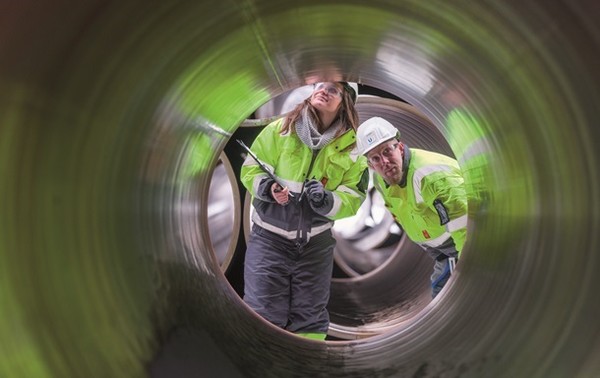The Council of the European Union approved amendments to the Unification Gas Directive. This will make it possible to extend European norms to the Nord Stream 2 gas pipeline, which is being built from Russia to Germany along the bottom of the Baltic Sea. The vote took place during a meeting of the EU Council in Luxembourg on Monday 15 April. 27 EU member states voted in favor, while Bulgaria abstained.
This is the final stage in the adoption of amendments to the Gas Directive, which is part of the EU's Third Energy Package. This week, the innovations are to be formally signed during the plenary session of the European Parliament in Strasbourg. After that, the document will be published in the Official Journal of the EU, and on the 20th day after publication, it will enter into force.
After that, gas pipelines laid in the EU from third countries will function according to the same rules as pipelines within the union. This will have the greatest impact on the new branch of gas supplies from Russia.
Impact on Nord Stream 2
The amended Gas Directive will not automatically stop the construction of Nord Stream 2. Whether to complete it or not is a decision of the private company Nord Stream 2 AG, which is owned by Gazprom. However, in order for the new gas pipeline to be put into operation, it will have to meet much more stringent requirements than, for example, Nord Stream-1, which started operating in 2011. These conditions are intended to ensure competition and protect the rights of EU consumers.
There are four main such requirements. The first of them assumes that gas transportation cannot be carried out by the same company that extracts and sells it (the so-called unbundling or “separation of assets”). Nord Stream 2 AG does not meet this requirement, so if Gazprom wants to launch the pipeline, it will have to create a separate operator that would be independent of the Russian monopoly. This independence must be confirmed by the German national regulator (Federal Network Agency). However, the European Commission and opponents of the project will enforce the rules.
The second requirement is the access of third parties to Nord Stream 2. In practice, this will most likely mean that part of its capacity will have to be kept empty to ensure the guaranteed pumping of other companies. In addition, the German national regulator will set competitive tariffs for gas transportation. Finally, the gas pipeline will have to work transparently, in particular, on the issue of security of supply.
Are exceptions possible?
The Gas Directive will apply to both new and existing pipelines. However, it provides for the possibility of exceptions. For existing gas pipelines, for example, Nord Stream 1, it will be quite easy to get exemption from meeting these requirements. But for new "streams" the requirements are more stringent. Whether to make an exception for Nord Stream 2 will be decided by the German regulator. However, the European Commission will be able to cancel this decision. Another way is to conclude an intergovernmental agreement between Berlin and Moscow, but it is impossible without the consent of Brussels.
The European Commission proposed to introduce such innovations back in November 2017, but Bulgaria and Austria blocked them for a long time. Only at the beginning of 2019, Romania began to actively promote them, when it took part in the voting in the EU Council. After a compromise was found in February, changes in the directive began to go through all the stages of adoption at a very fast pace.
The innovations have additional significance in the context of negotiations between Ukraine and Russia on gas transit from next year. The current contract between Kiev and Moscow is valid only until December 31. The launch of Nord Stream 2 will allow Russia to transfer to this gas pipeline part of the gas that is currently going to the EU countries through Ukraine and Poland.




